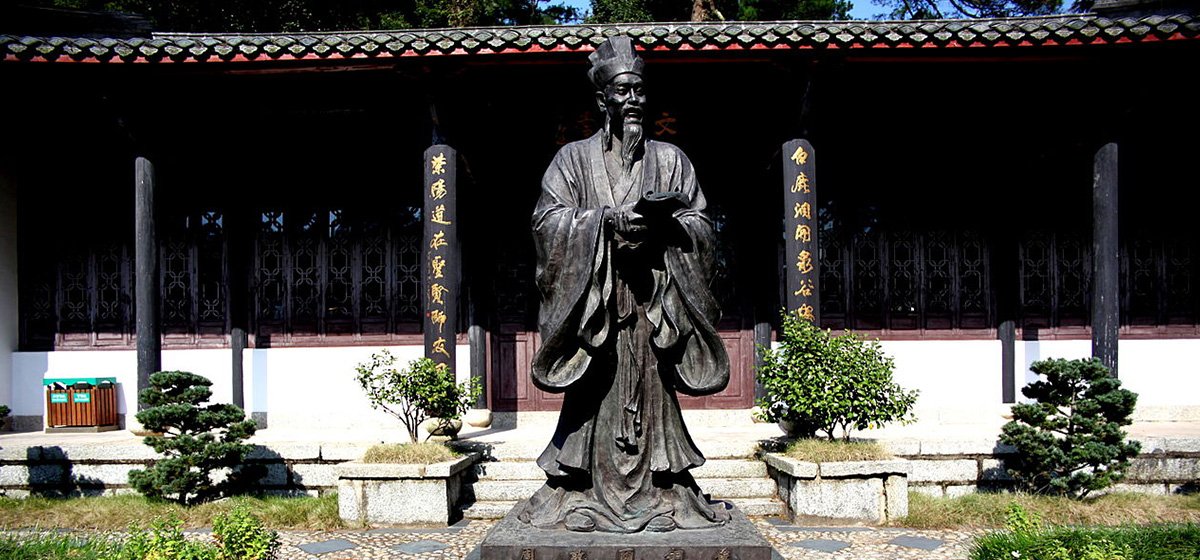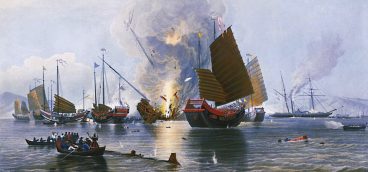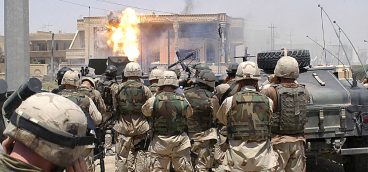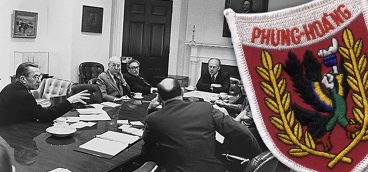China’s De-Militarization

“To enjoy peace, citizens must be ready for war.” — Plato, The Laws, fourth century B.C.
“If you want peace, prepare for war.” — Sima Qian in the Shiji, or Records of the Grand Historian, China, 94 B.C.
“Si vis pacem, para bellum [If you want peace, prepare for war].” — Publius Flavius Vegetius Renatus, De Re Militari, Rome, fifth century A.D.
Parabellum. 9mm cartridge invented by Georg Luger in 1902 that is now the standard cartridge used by NATO forces worldwide
Thus far we’ve used the wisdom of Gen. Sun Tzu to look back at America’s many “smaller” wars and figure out how we might have fought them in a smarter way—fewer casualties (especially), shorter durations, less global fallout.
My premise has been that small wars are likely to be inevitable so long as the United States remains the most powerful country in the world. Like it or not, we’re the world’s policeman and that world would be vastly more violent if we weren’t.
But to close this series, let’s ask Sun Tzu how best to prevent future wars of any kind, especially the kind of total war that so blighted the twentieth century and that is looking alarmingly more likely as China’s power and aggressive behavior increase daily.
Sun Tzu’s answer is simple, as noted in the quotes that appear above: Failure of a nation to remain militarily strong is the main and certain reason why it will be attacked by belligerent powers.
From time to time, pacifist movements have arisen in opposition to “Si vis pacem, para bellum.” Mainly, these movements have been associated in the West with socialism and, later, the left wing of the Democratic Party, but also with the isolationist and libertarian wings of the Republican Party.
The fundamental problem with all pacifist ideas is that they assume all nations will be as enlightened as the one being urged to disarm. But, invariably, no sooner has pacifist thinking taken hold and nations begun to disarm than some belligerent nation—Germany or the USSR most recently—attacked.
Ironically, though, the most singular and terrifying example of a nation brought to its knees by pacifist thinking was, of all places, Sun Tzu’s China, albeit centuries after his death.
Most readers are at least vaguely familiar with Confucius and Confucianism, the animating ideas behind the Chinese nation for 2,000 years. Briefly, Confucianism is a humanistic philosophy or way of life that values family, social harmony, hard work and similar virtues.
Based on the conviction that human beings are both fundamentally good and improvable, Confucianism advocates practicing lǐ, a system of ritual norms that determines how a person should act in everyday life so as to remain in harmony with the law of heaven. The core of Confucianism is the pursuit of unity between the individual self and god.
Confucius lived and practiced during the exact period when Sun Tzu flourished: the fifth century B.C. Confucianism was one—and the most consequential—of the Hundred Schools of Thought that flourished during that period and through the second century B.C., the so-called Golden Age of Chinese Philosophy.
Confucianism became the official ideology of China in the second century B.C. under the Han Dynasty and it persisted until 1905. But in the eighth and ninth centuries A.D., a schism occurred in Confucianism and so-called “Neo-Confucianism” became dominant.
This break was analogous to the schism that occurred in Christianity in the West in the 14th and 15th centuries, when Protestantism arose to challenge the Catholic Church, although the rift in Confucianism happened for more or less the opposite reasons.
Protestantism arose as a protest against the awesome power and deep corruption of the Roman Catholic Church, a circumstance made manifest to everyone by the bizarre Western Schism, a forty-year period during which two separate men claimed to be the true pope. If a Catholic sided with one pope, he or she was excommunicated by the other. The sheer idiocy of this circumstance tipped the scales away from reform of the Church and into revolt against the Church.
But in China, Neo-Confucianism arose mainly as a protest against the gentleness of Confucianism, against its focus on the individual and his or her ability to follow their own paths to heaven. The Neo-Confucians wanted a much more robust ideology that would redound to the benefit of the state, and that’s what they got. Instead of emphasizing the ruler’s obligations to the ruled, Neo-Confucianism emphasized the obligation of the people to obey their rulers.
For the next 1,000 years, Neo-Confucianism dominated China (and much else across Asia), forming the basis of the imperial examination system and fueling the rise of the scholar officials. No longer would individual Chinese pursue self-cultivation and improvement. Instead, people would follow the detailed advice of the Neo-Confucians on everything from day-to-day conduct to the organization of weddings and funerals.
But the most profound difference between Confucianism and Neo-Confucianism, and the one we are concerned with here, was the Neo-Confucianist denigration of the martial spirit and of all things associated with the military. This very strange development happened for both good and bad reasons.
On the positive side, the Neo-Confucians were justifiably appalled by the constant warfare that had bedeviled China since the prehistoric, mythical days of the country. Seizing on the fact that Confucius himself didn’t practice the martial arts (except, apparently, for archery) the Neo-Confucians denigrated and disparaged the martial spirit in general and the military professions in particular. And the revilement of all things military got worse as the centuries went by.
True, even the Neo-Confucians recognized that complete elimination of the nation’s military capabilities would allow “barbarian” forces along China’s border to overthrow the emperor or at least throw the country into chaos. Thus, a military force was necessary but distinctly undesirable, and the theretofore rapid progress China had made in military technology and tactics came to a grinding halt.
But there was also an arrogant and, ultimately, absurd reason for the Neo-Confucians de-emphasis of China’s military, as we’ll see next week.






